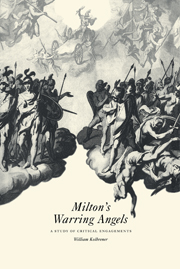Book contents
- Frontmatter
- Contents
- Acknowledgments
- Introduction
- PART I POLITICS
- PART II THEOLOGY
- 3 Introduction: Whig metaphysics
- 4 “Abnormal forms of discourse”: Milton's De Doctrina Christiana
- 5 “Milton contrasted with Milton”: multiplicity in De Doctrina Christiana
- PART III POETICS
- Conclusion: devils, angels, and Milton
- Notes
- Index
5 - “Milton contrasted with Milton”: multiplicity in De Doctrina Christiana
Published online by Cambridge University Press: 23 November 2009
- Frontmatter
- Contents
- Acknowledgments
- Introduction
- PART I POLITICS
- PART II THEOLOGY
- 3 Introduction: Whig metaphysics
- 4 “Abnormal forms of discourse”: Milton's De Doctrina Christiana
- 5 “Milton contrasted with Milton”: multiplicity in De Doctrina Christiana
- PART III POETICS
- Conclusion: devils, angels, and Milton
- Notes
- Index
Summary
… it was but breath
Of life that sinn'd; what dies but what had life
And sin? The Body properly hath neither.
All of me then shall die …
(Paradise Lost, x 789–92)… the Spirit of Man
Which God inspir'd, cannot together perish
With this corporeal Clod …
(Paradise Lost, x 784–6)It is a question which can be debated without detriment to faith or devotion, whichever side we may be on.
Milton on the death of the soul (vi 400)Milton's reading of scriptures, especially his account of anthropomorphism – with its insistence on the compatibility of radically different scriptural images – could best be called, as MacCullum suggests, “epistemological.” This form of argument, as the perspectives about the soul's mortality articulated by Adam in Paradise Lost, resists consistency (and conclusiveness), leaving Milton's “system” to appear to more than one commentator as “contradictory.” Milton “was not at all times a philosopher,” Arthur Sewell asserts, “and it is a mistake,” he continues, “to impose a logical system on his thought when in fact there was none complete.” Milton, however, was not so much guilty of contradiction, as Sewell contends; though the multiplicity of perspectives inscribed in Paradise Lost and De Doctrina clearly lend themselves to a tradition in which, in Burgess's phrase, “Milton” has been “contrasted with Milton.”
For critics of Milton since the eighteenth century, monism and dualism (or in an older lexicon, heresy and orthodoxy) have come to represent (competing) theories of being. By upholding the abstract antithesis between monism and dualism, many of these critics have failed to attend to the ways in which Milton's texts, like their biblical precursor, seem to sustain apparently contradictory perspectives.
- Type
- Chapter
- Information
- Milton's Warring AngelsA Study of Critical Engagements, pp. 84 - 104Publisher: Cambridge University PressPrint publication year: 1997



